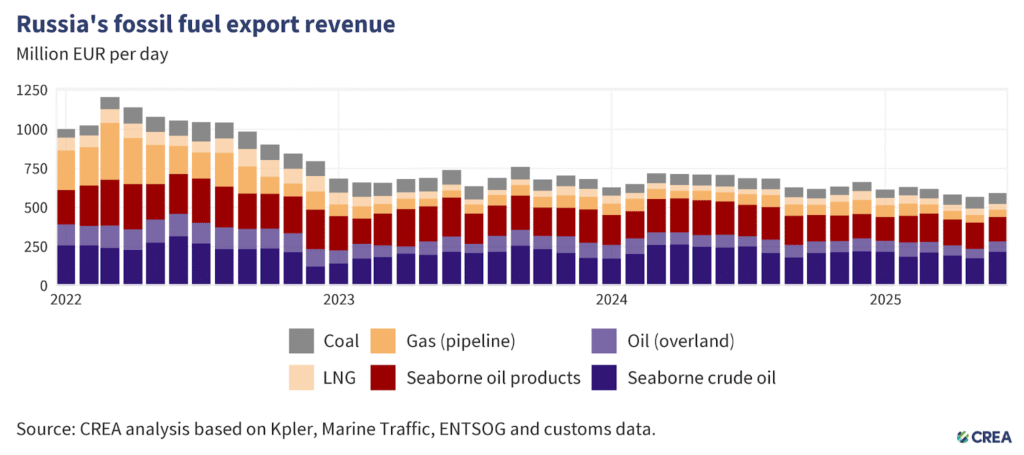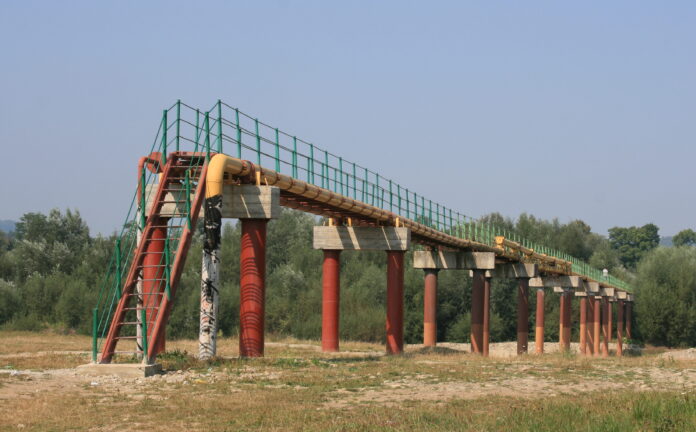Pressure on the end of Russian fossil fuels is accelerating, both from the EU’s side and worldwide. Commission President Ursula von der Leyen has announced the 19th package of sanctions on Friday, 19 September. The United States also vehemently intervened in the matter a few days ago.
In its new, 19th package of sanctions against Moscow, the European Commission proposes sanctions on another 118 ships from Russia’s so-called shadow fleet and banning transactions for additional banks in Russia and third countries, Commission President Ursula von der Leyen announced. These sanctions must now be unanimously approved by all European Union member states.
The EU was supposed to announce new package of sanctions against Moscow already on Wednesday, 17 September, which did not happen. The reason appears to be to get more time for negotiations among member states, namely with Hungary and Slovakia. These two countries still import large volumes of Russian oil.
Speeding up the phase-out
The EU originally planned to phase out Russian energy completely by 2027 in its REPowerEU roadmap. That plan, however, has been fiercely opposed since the very beginning by Hungary and Slovakia.
A few days ago the US President Donald Trump intervened, calling on NATO countries to stop importing Russian oil completely as part of the pressure on Moscow. At the same time, Trump’s energy envoy Chris Wright called on the EU to speed up the phase-out of Russian oil supplies.
You might be interested
Earlier this week, Commission President Ursula von der Leyen announced—following a phone call with Mr Trump—that Commission will propose speeding up the phase-out of Russian fossil imports.
On Friday, 19 September Commission President said that revenues from fossil fuels power the Russia’s war machine and that “it is time to turn off the tap”. “We are prepared (…) we are diversifying, we are saving energy,” Ms von der Leyen added.
Russia’s war economy is sustained by the revenues from fossil fuels (…) It is time to turn off the tap. — Ursula von der Leyen, Commission President
Regarding the EU’s unity, the fact that the situation is changing was evidenced by a statement from the Hungarian foreign minister Péter Szijjártó. On Tuesday, September 16, Mr Szijjártó announced that Hungary signed a long-term natural gas purchase contract with Shell. It includes a purchase of 2 billion cubic metres of natural gas over 10 years, starting in 2026.
Secondary sanctions as additional leverage
The United States keeps pressuring the largest importers of Russian fossil fuels to reduce or completely halt these imports. This mainly concerns China and India. The Americans also argue that it is precisely these large revenues from fossil fuel exports that enable Moscow to finance the war in Ukraine.
Already in the end of August 2025, US tariffs of 50 per cent on goods from India took effect. That is how President Trump punishes India for buying Russian oil and weapons.
Russia’s export revenues declining
Since the start of Russia’s invasion of Ukraine, the Russian Federation’s revenues from fossil fuel exports have fallen significantly according to Center for Research on Energy and Clear Air’s (CREA) data. Compared to the beginning of 2022, these revenues are now only about half as much. Oil exports, both by sea and through pipelines, account for the largest share of these export revenues.

By far the largest importer of Russian fossil fuels (in the period since February 2022) has been China, followed by India and Turkey. The EU as a whole ranks fourth. According to an analysis by Russia Fossil Tracker, EU countries paid Moscow €214bn during this period.











